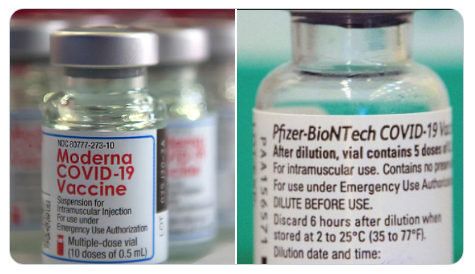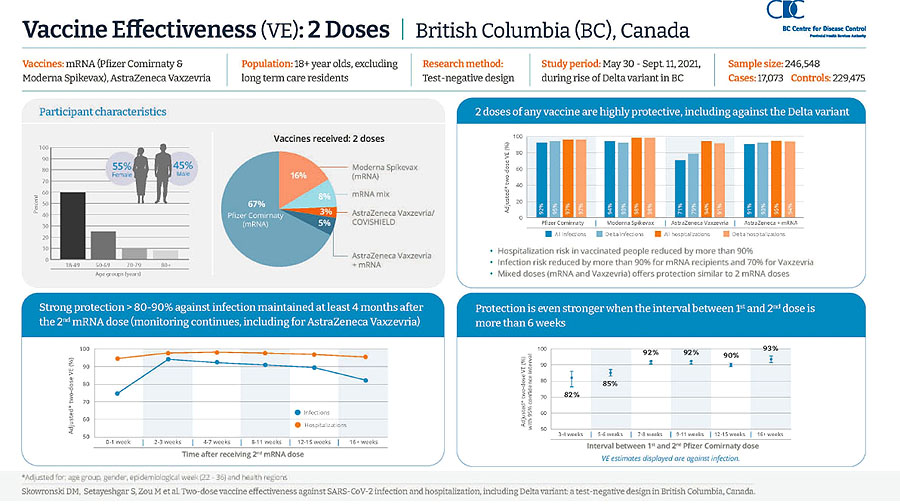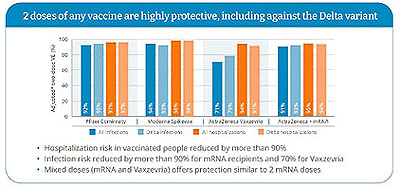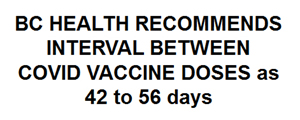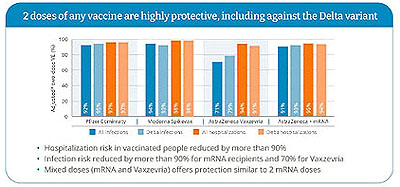
Wednesday September 29, 2021 | VICTORIA, BC [Updated Sept 30, 2021]
by Mary P Brooke, B.Sc., Editor | Island Social Trends
Vaccines against COVID-19 are effective. This message was repeated by Provincial Public Health Officer Dr Bonnie Henry again yesterday in the most recent data modelling.
Vaccines were only first available in December 2020 and were used right away among seniors in long-term care and assisted living, and soon after in the 2021 new year among health-care workers in those types of facilities. Essential visitors to long-term care were looped into that process.
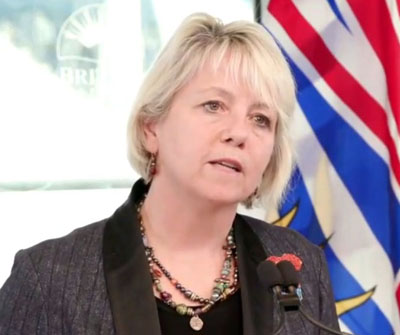
Then the province rolled out their BC Immunization Plan which was age based, starting with the eldest in society and moving down in age cohorts over a matter of weeks and months. Young adults in their 20s and 30s were left to last in the appointment queue system (even teens were invited to get vaccinated along with parents who had appointments — or just drop-in on their own).
Boosters for long-term care residents:
When getting a COVID-19 booster (third shot) now at the start of the respiratory illness season, residents in long-term care and assisted living will also receive an annual influenza vaccine, it was mentioned yesterday.
There is no word yet as to when health-care workers and essential visitors will be offered their third shot. Island Social Trends inquired with BC Health as to the opportunity or timeline for that, but in their response they declined to answer that question.
Types of vaccines:
There are three types of COVID-19 vaccine products actively used in BC at this time: Pfizer-BioNTech, Moderna and AstraZeneca.
The mRNA types (Pfizer and Moderna) have a more enduring level of effectiveness), yielding a reduction of infection risk by 80% to 90% after receiving the second dose. The viral vector type (AstraZeneca) offers at least 70% effectiveness after the second dose, according to the chart below.
Strong protection for at least four months:
The BC Centre of Disease Control (BC CDC) September 28 modelling report says that BC COVID-19 vaccine effectiveness results show that two doses of COVID-19 vaccines provide strong protection, including against the Delta variant, and prevent about 95% of hospitalizations. Their results are from a study from May 30 through September 11, 2021, in people age 18+ (excluding long-term care) “during the rise of the Delta variant in BC”.
Protection is maintained for at least four months. That clearly indicates the need for booster shots as the pandemic continues.
Interval between shots:
The longer the interval between first and second COVID vaccine shots, generally the better effectiveness of protection. That has been said by Dr Henry all year, with only the length of the interval varying in her remarks.
In spring 2021 the preferred interval was 11 weeks (so a lot of older people in the age-based queue will have received their two shots up to 11 weeks apart or more).
In recent months the recommended interval has been six to eight weeks (i.e. 42 to 56 days) even though the 28-day interval was highly promoted in the return-to-campus phase in August and early September. This will leave anyone rushing to get two doses ahead of returning to work or school in September (or rushing to satisfy BC Vaccine Card requirements) with comparatively less protection.
Overall, this shows an ultimate convergence of need in the population for a booster (third shot) early in 2022. Those who got two doses at a long interval in spring/summer 2021 and those who got their shots with a short interval in summer/fall 2021 (as well as anyone getting a first or second shot in October or November) will be due for a boost in the new year in 2022.
Future or annual shot starting 2022:
Whether the word ‘booster’ is used, or perhaps now making the COVID-19 vaccine shot an annual health recommendation, remains to be seen. If the latter, your next shot could well just be called your “2021 COVID shot” and might be combined with the influenza vaccine that in recent years has not garnered a lot of public uptake (due to its hit and miss track record in trying to keep up with the ever-changing flu viruses).
Yesterday Dr Henry says she’s looking at what’s being done in the UK as to dosage level, noting a half-dose being administered in the booster round.
In a direct inquiry to BC Health on September 29, Island Social Trends asked if there will be a new immunization program in 2022 for the entire population. Yes, Dr Henry did say in her media session September 28 that “we are not seeing a need for a booster dose for most of us right now”, but that does not address our question regarding recognition of a tailing off of vaccine effectiveness and a plan for 2022.
===== RELATED:
COVID in BC: booster shot coming for long-term care residents (September 28, 2021)
BC & Vancouver Island COVID profile heading in Fall 2021 (September 25, 2021)
Recommended COVID vaccine interval is longer than 28 days (September 18, 2021)
Vancouver Island: COVID infections in over 1,600 kids & teens (September 16, 2021)
PHAC: Same COVID vaccines in Canada, new names (September 16, 2021)



